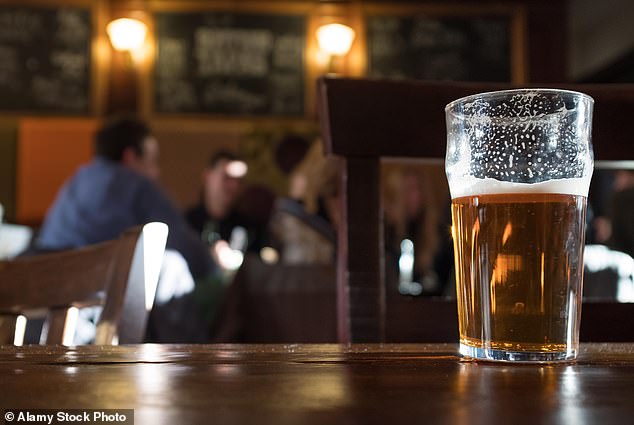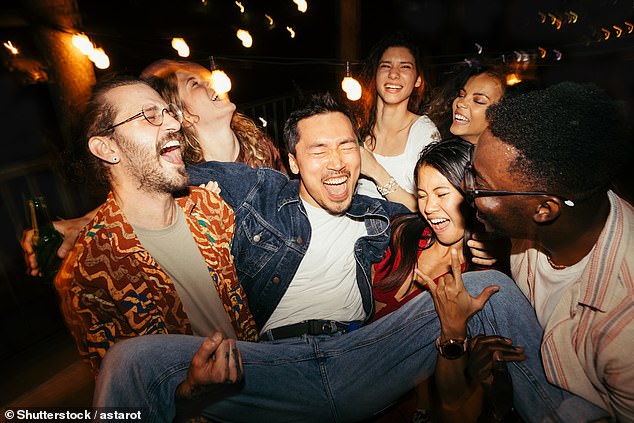- Britons have 546 different words for ‘drunk’ according to researchers
- Almost any word can be used to mean drunk as long as it ends with an ‘-ed’
If you’ve ever felt ‘gazeboed’, ‘carparked’ or completely ‘cabbaged’ after a night out, this may come as no surprise.
Linguistic researchers have discovered that virtually any noun can be transformed into a ‘drunkonym’ – a synonym for intoxicated – simply by adding ‘ed’ at the end.
The study found we have an astonishing 546 words that are formally defined as meaning drunk, including ‘trolleyed’, ‘hammered’, ‘wellied’ and ‘steampigged’.
It confirms a theory first suggested by comedian Michael McIntyre, who said Britons could understand any word as meaning drunk if it is preceded by ‘I got completely…’
Professor Christina Sanchez-Stockhammer, of Chemnitz University in Germany, believes it may be due to Britain’s deeply-rooted culture of social drinking and Monty Python-style absurdist humour.

Researchers have found that Britons have 546 words for drunk and that almost any word can be used so long as it ends with an ‘-ed’ (stock image)
She said: ‘In English, there’s an extremely large number of words that can mean drunk, and more can be formed simply by adding ‘ed’ to the end.
‘It means pretty much any word in Britain can inherit the meaning “drunk” automatically from the context.
‘This humorous modifying of words is only possible because of the way sentences are constructed in English, and because the British really enjoy witty wordplay. For example, it would not work in German.’
She said the funny effect of drunkonyms is often achieved through their indirectness, adding: ‘For example, “gazeboed” and “carparked” are funny because there is no direct relation between the base word and the meaning “drunk”.’
Prof Sanchez-Stockhammer said indirectness is also present in other types of playful language, such as Cockney rhyming slang, which includes drunkonyms like ‘Brahms’ and ‘Schindler’s’ – short for ‘Brahms and Liszt’ and ‘Schindler’s list’, both of which rhyme with ‘pi**ed’.

If you’ve ever felt ‘gazeboed’, ‘carparked’ or completely ‘cabbaged’ after a night out, this may come as no surprise. Linguistic researchers have discovered that virtually any noun can be transformed into a ‘drunkonym’ – a synonym for intoxicated – simply by adding ‘ed’ at the end (stock image)
She added: ‘We studied for a year in Great Britain and witnessed British culture first-hand. Drunkonyms fit in well with the humourous British outlook on drinking and life in general.’
The study, published in the Yearbook of the German Cognitive Linguistics Association, found that English speakers regularly use a range of alternative words for ‘drunk’.
By the time Britons reach adulthood, most will have experienced so many different drunkonyms that it allows them to recognise even unknown words ending in ‘ed’ as meaning ‘drunk’ in many contexts.
Even though excessive alcohol consumption may come with negative consequences, Britons commonly discuss drunkenness in a light-hearted way, the researchers added.








